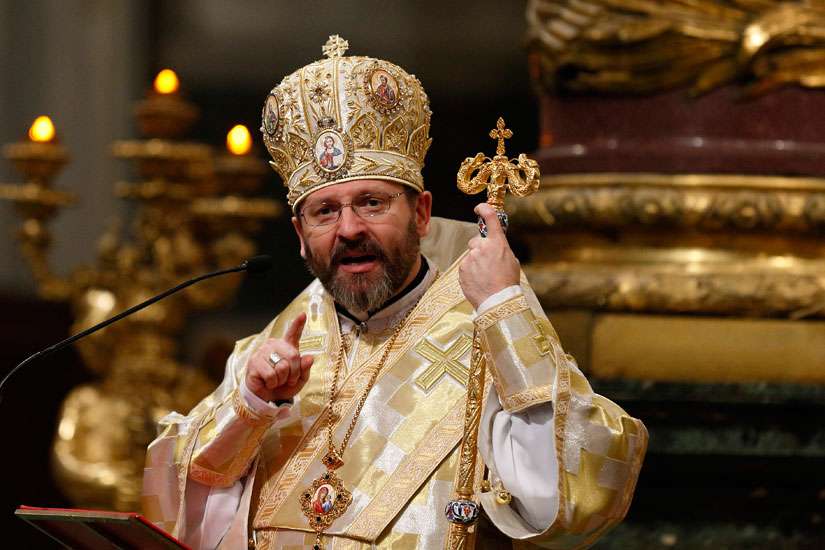"While defending our native land from the enemy, we are also called on to develop our state — a national house in which harmony and justice, honesty and respect for each person's dignity will reign," the bishops said.
"Our future depends equally on courage and endurance by our soldiers at the front, and on the integrity and responsibility of politicians. We cannot allow our military to protect us from the enemy at the cost of life, while returning home to find a country eroded within by corruption, bribery, dishonesty, populism and irresponsibility."
In a pastoral message to be read in all churches Oct. 18, the bishops said Ukrainians had shown a readiness to work for justice and the common good during the 2004 Orange Revolution, and again during the 2014 Revolution of Dignity, which led to the flight of pro-Russian President Viktor Yanukovich.
They added that the Oct. 25 local elections would mark a key stage toward "positive and irreversible social change," which depended "on the personal transformation of every citizen, a change of thinking and a decisive, radical choice for goodness."
"Disengagement would mean social and moral desertion, since our fate will be decided without us," said the message, signed by Major Archbishop Sviatoslav Shevchuk of Kiev-Halych, head of the Ukrainian Catholic Church.
"Accountability and integrity are needed to guarantee votes which are genuinely free, conscious and consonant with citizens' consciences. Blind violence, hatred and contempt for the human dignity of opponents cannot be considered adequate means for political struggle," it said.
Preparations for the elections coincide with pledges by the Ukrainian government and rebel forces to pull back weapons from wartorn areas of eastern Ukraine under a September ceasefire.
On Oct. 6, separatist leaders from the self-proclaimed republics of Donetsk and Luhansk said they would also postpone planned separate elections until February to help ease the conflict, in which around 8,000 people have been killed and 17,800 injured since April 2014, according to United Nations data.
However, they warned the Kiev government to honour a peace deal, bargained last February in Minsk, Belarus, by granting special status to rebel-held regions, constitutional changes and an amnesty for separatist fighters.
In their message, the Catholic bishops said the war, "imposed from outside," had been "fueled by weapons and mercenaries," adding that politicians attempting to buy votes or spreading "empty promises and populist slogans" would "destroy the moral foundations of statehood and commit a crime against present and future generations, as well as violating the memory of victims."
They also warned candidates not to "use the Church's authority for selfish interests or political agitation" and cautioned priests "to be sensitive and not endanger the good name of the Church of Christ."
"Let those claiming the local community's trust first deserve it through good works and initiatives — and let voters avoid choosing blindly and placing the reins of power in unworthy or inappropriate hands," the message said.
Ukraine's electoral commission said 132 parties would be on the Oct. 25 ballot.
Appealing for prayers Oct. 14, Shevchuk, who was in Rome for the Synod of Bishops on the Family, urged the Catholic Church worldwide to show "we are not left alone, and that God, the Pope and Church are with the suffering Ukrainian nation."
He added that 1.5 million people were currently internally displaced in his country, with 400,000 dependent on aid, but said most Ukrainians felt they had become "the object of political, diplomatic, economic and even ecumenical negotiations," and wondered "if God has abandoned us."


